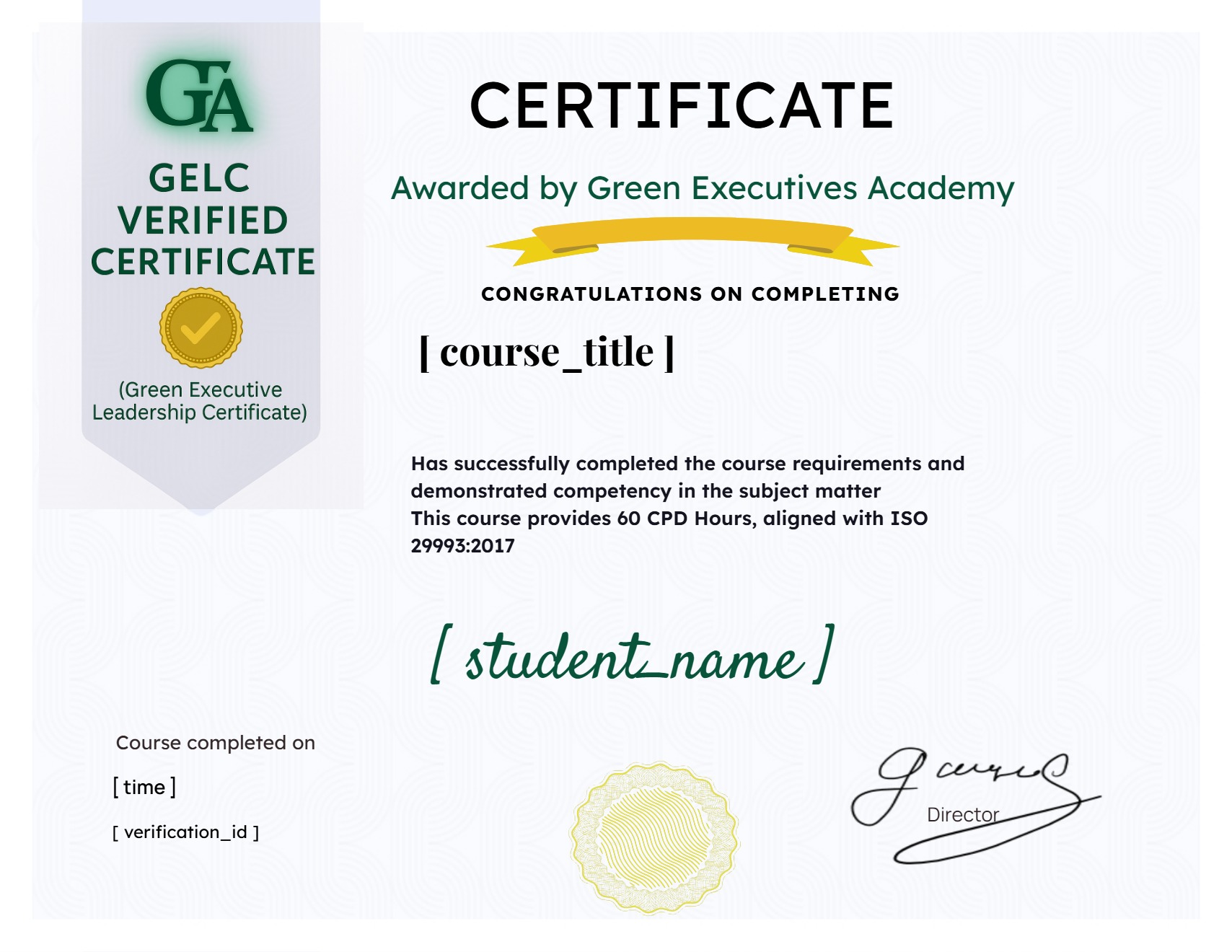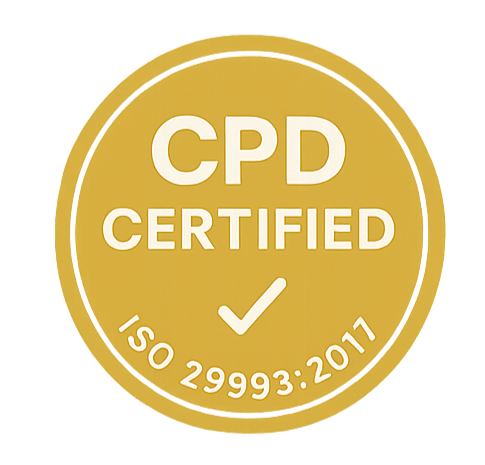
About Course
CPD Hours: 60
Format: On-Demand
Certification: CPD-Aligned (ISO 29993:2017)
Why Enroll in This Course?
The renewable energy sector is evolving faster than ever. To lead in this space, professionals need more than technical expertise — they must master financial, strategic, and regulatory skills that drive successful projects.
This flagship program equips you with the advanced knowledge and practical tools to manage renewable energy projects from concept to completion, positioning you as a recognized expert in the field.
What You’ll Gain
✔️ A strong foundation in renewable energy sources and emerging technologies
✔️ Expertise in financial strategies, investment, and risk management
✔️ Deep understanding of policy, regulation, and global sustainability frameworks
✔️ Practical insights through real-world case studies, simulations, and quizzes
✔️ An internationally recognized CPD credential to elevate your professional profile
Course Modules
1️⃣ Introduction to Renewable Energy Management
2️⃣ Technologies in Renewable Energy
3️⃣ Financial Aspects of Renewable Energy Projects
4️⃣ Project Development & Stakeholder Management
5️⃣ Policy & Regulatory Environment
6️⃣ Risk Management in Renewable Energy Projects
7️⃣ Sustainability & Life Cycle Assessment
8️⃣ Energy Efficiency and Innovation
9️⃣ The Future of Renewable Energy
🔟 Capstone Assessment & Certification
Materials Included
📘 Lecture slides and detailed notes
🎥 Recorded video lessons (full On-Demand Access)
📊 Case studies and global project examples
📝 Quizzes and assignments to reinforce learning
📚 Curated reading materials for advanced study
Certification
Upon completion, you’ll receive a Certificate of Completion confirming 60 CPD hours, aligned with ISO 29993:2017 international standards.
Who Should Join
This course is ideal for:
-
Renewable energy professionals & project managers
-
Environmental scientists & engineers
-
Business & finance experts entering the clean energy sector
-
Policymakers, regulators, & sustainability officers
-
Researchers & graduate students seeking professional recognition
Investment
💲 $499 (On-Demand Special)
(Live Online available upon request — contact us for pricing & group terms)
Course Content
Course Delivery Options and Schedule
Module 1 – Introduction to Renewable Energy Management
Module 2 Technologies in Renewable Energy
Module 3 – Financial Aspects of Renewable Energy Projects
Module 4 Project Development in Renewable Energy
Module 5 – Policy and Regulatory Environment in Renewable Energy
Module 6 – Risk Management in Renewable Energy Projects
Module 7 – Sustainability and Life Cycle Assessment in Renewable Energy
Module 8 – Energy Efficiency and Innovation
Module 9 -The Future of Renewable Energy
Capstone Assessment: Renewable Energy Management
Earn a certificate
Add this certificate to your resume to demonstrate your skills & increase your chances of getting noticed.



